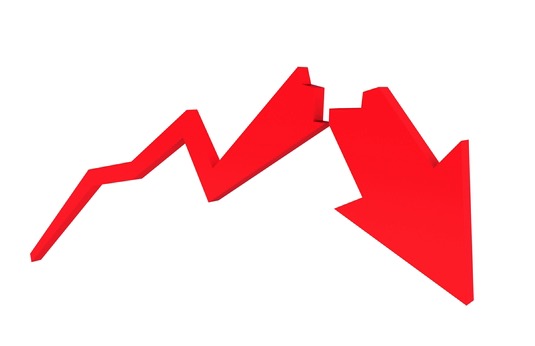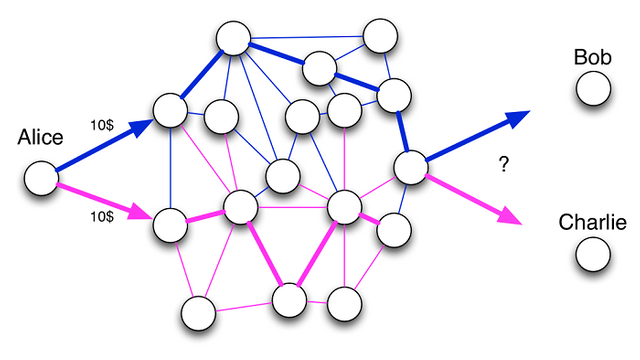Understanding Blockchain Technology and It's Downsides
If you've ever heard terms like Bitcoin or Cryptocurrency, I'm sure you've also heard the term Blockchain. Blockchain technology is something we're gonna hear more and more about over the next coming years.
What is a Blockchain? How does it work? and what does it mean to people like you and me?
Put more simply, a Blockchain is a list of transactions that is distributed publicly so they can be verified and a level of trust can be created that those transactions actually occurred. The reason why it's called a Blockchain is because it is a series of blocks of data and inside those blocks are transactions and they are chained together, it’s the chaining of them together gives the strength of Blockchain. Before I go on more about how they chain together, let me briefly explain a thing called Hashing.
Hashing
Hashing is a technology that you find in computers from way back. Basically, there are two types of hashes in computer science, you’ve got a Non-unique hash and a Unique hash.
A unique hash is really interesting, what it basically means is whatever data you give the hashing function, hashing algorithm, the hash that comes out will be guaranteed unique.
It’s quite amazing because it means if you give it a photo, video file or you give it transactions then it will say “this hash is unique” and you can compare to hashes very quickly and if they're the same, you know that the transactions are talking about the same block of data to about the same transactions and if they're different, then you know they're not the same.
The key about hashes is that they have to produce a different unique answer even if one little bit of that data is different. If you have a sentence and then the sentence changes even by one character, then the hash has to be very different.
In the Blockchain, what happens is that there is a particular hash called SHA-256 which belongs to the secure hashing algorithm family of hashes and SHA-1 used to be the darling of the internet, there are some weaknesses in it now where you can maybe find piles with the same data so that they can give you the same hash, but now they've moved up to SHA-256 which is a form of the SHA-2 hash.
Basically, what happens is that when you have a block of data, you produce a hash for that block and embed that hash in the next block, so when the next block of transaction comes and inside that block is actually the hash for the one before it and then comes on the next block of transactions and inside that block is the hash for the one before it.
This means it produces a chain because you can jump from one block to the next block by following the hashes but also what it means is that if you want to change your block even if it’s one bit, it changes the hash. To actually change any one block inside of the Blockchain, then you have to change the whole chain.
I explained Blockchains because they’ve got to do with Bitcoin and other cryptocurrencies and the idea is that transaction is sent out there on the internet and the second important thing is that it’s distributed, it's using a peer-to-peer network which means there isn't a centralized server owned by any financial institution, it's transmitted to everybody that's part of the Bitcoin network which means that there are thousands of copies of the chain or fragments of the chain throughout the entire world.
Even when a part of the Internet, server, or particular institution is unavailable, the transactions can still keep going on, they can still be verified and there’s still a level of trust because it's now distributed. This is a decentralized view of doing final transaction, differently to what we have today where the banks are the centralized authority and trust source for doing transactions.
Blockchain Technology is not exclusive to Cryptocurrencies
Blockchains are much more than just what can be done with Bitcoins, it can be applied to anything where there is a list of transactions. For example, maybe in most countries I assume the land registry is a public record and if you want to find out who owns a piece of land, you might go to the right office and fill out the right form, you submit it and then it comes back maybe days weeks later.
Imagine a world where the land registry was in a Blockchain, it is distributed anywhere across the internet and when you want to verify who owns a particular piece of land, what the last transaction was on a piece of land, then of course you just look at the Blockchain and it tells you and you know it's secure and verified because of that Blockchain technology. That would be a great way of having public records available for anybody to verify and check the transactions.
Downside of Blockchain Technology

image credit
There is a downside to Blockchain technology because those transactions that are put onto the Blockchain need to be verified themselves and the way you do that is using private public key cryptography.
Basically, with public key cryptography, I'm able to sign a transaction as the private party, I then broadcast that out using the public part of my key and it can be verified that I did sign that transaction. When the key don't match up in this private-public setup, then you know that it is a false transaction.
The problem is if you ever lose your private key, you lose everything. For example, if I had a disaster in my house let's say there was a flood and all my documents got destroyed even my land registry documents, I can still get a new driving license, new passport and copies of my birth certificate, and I can go back to the land registry to get again a copy all those documents to prove that it's me that owns a particular piece of land.
But if I lose my private key, it’s gone. I've got no way at that point to prove that I am actually the owner of that land and this is what happens in the Bitcoin world when people lose their private key, they lose their wallet then of course they can't get those bitcoins back, they are gone forever because the key is no longer available.
That's a real weakness because at the level we are all used to living, in terms of identification and how we process things and when we lose our keys, it's weights a pain but it's not the end of the world. If you lose a key for something like land registry, Bitcoins, medical records or anything like that, then now we're in real trouble because everything is focus on that one point of weakness and that is a problem with the Blockchain.
I hope you enjoyed this article, if you did please do give an Upvote and share your thoughts.
References: 1 - 2 - 3


GIF made by @foundation
Thanks to @camzy & @samstickkz for this amazing toon.





People please listen to this! Do not loose your keys/passwords!!! @ememovic Thanks for putting this info out here. Hope more people read this.
Thanks for visiting.
Finally something comprehensive on this topic. I'm wondering how many people committed the suicide after losing the keys for some old bitcoins when it was worthless.
This post has been voted on from MSP3K courtesy of @ehiboss from the Minnow Support Project ( @minnowsupport ).
Bots Information:
Join the P.A.L. Discord | Check out MSPSteem | Listen to MSP-Waves